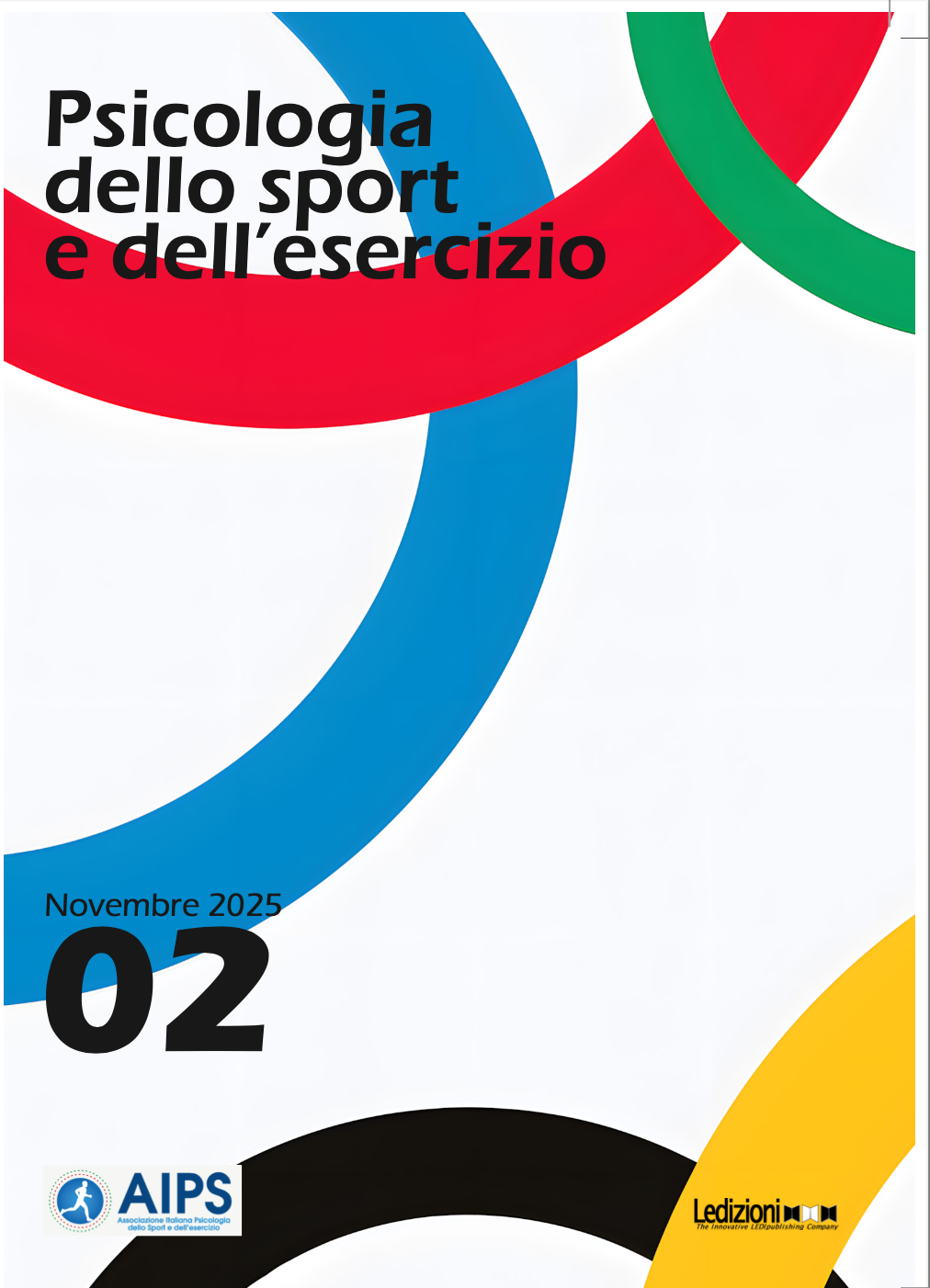L'Arte e la Scienza del Talento nel Pattinaggio Artistico: Un Approccio Integrato
Parole chiave:
pattinaggio artistico, sviluppo del talento, specializzazione precoce, gestione dello stress, autopercezione, inclusione, sistemi di valutazioneAbstract
"L'Arte e la Scienza del Talento nel Pattinaggio Artistico: Un Approccio Integrato" rappresenta una rassegna critica di 20 contributi scientifici pubblicati dopo i Giochi Olimpici del 2022, finalizzata a sintetizzare le conoscenze sullo sviluppo del talento nel pattinaggio artistico. Il lavoro analizza vari fattori determinanti per il successo degli atleti, quali la predizione delle performance future basata sui risultati giovanili, l'impatto della specializzazione precoce, le dinamiche psicologiche e la gestione dello stress, nonché il ruolo dell'autopercezione in un contesto di pressioni socio-culturali e di inclusione. Particolare attenzione è dedicata al ruolo dei giudici e ai sistemi di valutazione, evidenziando le sfide nel bilanciare criteri tecnici oggettivi con l'espressività artistica. I risultati evidenziano l'importanza di adottare un approccio multidimensionale per migliorare la selezione e la formazione degli atleti, suggerendo implicazioni pratiche per lo sviluppo di interventi educativi e di politiche sportive orientate a creare un ambiente competitivo più equo e sostenibile.
Riferimenti bibliografici
Arajärvi, P., & Thesleff, P. (2020). Suorituskyvyn Psykologia. VK-Kustannus Oy.
Andrews, A. (2024). Unraveling the Impact of Stress on Performances, Training and the Overall Well-Being for Figure Skaters. Haaga-Helia University of Applied Sciences.
Baker, J., Cobley, S., & Schorer, J. (2020). Talent Identification and Development in Sport: International Perspectives(2nd ed.). Routledge. https://doi.org/10.4324/9781003049111
Barth, M., Güllich, A., Macnamara, B. N., & Hambrick, D. Z. (2023). Quantifying the extent to which junior performance predicts senior performance in Olympic sports: A systematic review and meta-analysis. Sports Medicine, 54, 95–105. https://doi.org/10.1007/s40279-023-01906-0
Cattle, A., Mosher, A., Mazhar, A., & Baker, J. (2023). Early specialization and talent development in figure skating: Elite coaches’ perspectives. Current Issues in Sport Science, 8(1), Article 013. https://doi.org/10.36950/2023.1ciss013
Cattle, A. (2023). Early Sport Engagement in Elite Figure Skaters [Master’s thesis, York University].
Caple, J. (2010, February 17). Now this is Olympic entertainment. ESPN. https://www.espn.com/olympics/winter/2010/figureskating/columns/story?columnist=caple_jim&id=4920718
Chen, A. (2024). GOEs, PCS, and BMIs: Anorexia Nervosa and the Pressures of Figure Skating. University of California, Los Angeles.
Güllich, A., Barth, M., Macnamara, B. N., & Hambrick, D. Z. (2023). Quantifying the extent to which successful juniors and successful seniors are two disparate populations: A systematic review and synthesis of findings. Sports Medicine, 53, 1201–1217. https://doi.org/10.1007/s40279-023-01840-1
Güllich, A., Macnamara, B. N., & Hambrick, D. Z. (2022). What makes a champion? Early multidisciplinary practice, not early specialization, predicts world-class performance. Perspectives on Psychological Science, 17(1), 6–29. https://doi.org/10.1177/1745691620974772
Haarala, S., Horttana, V., & Valto, R. (2011). Career Path of a Figure Skater. Finnish Figure Skating Association.
Hu, J., & Matsuoka, H. (2024). Art or Sport? Exploring Spectator Involvement in Figure Skating through Knowledge Dimensions. Rikkyo Business Review, 17, 13–25.
Ji, A. (2024). The influence of figure skating on the central nervous system, social wellbeing, and mental health. International Journal of High School Research, 6(1), 8–13. https://doi.org/10.36838/v6i1.2
Ji, Z. (2022). Gliding on the edge of the iron cage: Performing rationality and artistry in the sport of figure skating. American Journal of Cultural Sociology, 10(4), 657–675. https://doi.org/10.1057/s41290-022-00178-x
Junior, M. N., Lopes-Silva, J. P., Takito, M. Y., & Franchini, E. (2024). Cadet and junior performance is associated with senior’s World Championship and Olympics achievement in judo. Research Quarterly for Exercise and Sport, 95(1), 54–59. https://doi.org/10.1080/02701367.2022.2147477
Kuznetsova, E. (2024). Psychological Skills Training Guide for Adolescent Figure Skaters. Haaga-Helia University of Applied Sciences.
Lee, M. N. (2024). Does early performance predict later success in figure skaters? [Master’s thesis, University of Toronto].
Li, F. (2023). The role of self-perception in figure skating. Applied & Educational Psychology, 4(11).
O'Donnell, C. (1992, January 26). Figure skating: Art or sport? New York Times, 15.
Pomai. (2023). How to deal with “unfair” judging in figure skating. Sports Psychology Skating.
Rauer, T., Walter, N., & Reinschmidt, C. (2022). Biomechanical risk factors for injuries in figure skating: A retrospective study. Journal of Sports Science & Medicine, 21(4), 732–740.
Schnell, A., Godley, J., & Bridel, W. (2023). Attitudes towards LGBTQ+ inclusion in Canadian figure skating. The Open Sports Sciences Journal, 16, e1875399X2302010. https://doi.org/10.2174/1875399X-v16-e230308-2022-35
Sundgot-Borgen, J., Meyer, N. L., Lohman, T. G., Ackland, T. R., Maughan, R. J., Stewart, A. D., & Müller, W. (2013). How to minimise the health risks to athletes who compete in weight-sensitive sports: Review and position statement on behalf of the Ad Hoc Research Working Group on Body Composition, Health and Performance. British Journal of Sports Medicine, 47(16), 1012–1022. https://doi.org/10.1136/bjsports-2013-092966
Thomas, O., & Overbye, M. (2023). Developing self-regulation in figure skating: A qualitative study of elite young skaters’ experiences. Psychology of Sport and Exercise, 40, 52–59.
Voelker, D. K., & Reel, J. J. (2015). An inductive thematic analysis of female competitive figure skaters’ experiences of weight pressure in sport. Journal of Clinical Sport Psychology, 9(4), 297–316.
Weinberg, R. S., & Gould, D. (2019). Foundations of Sport and Exercise Psychology (7th ed.). Human Kinetics.
Wood, S., & Fletcher, D. (2024). Using Acceptance and Commitment Therapy for unhelpful thinking towards body image with an elite figure skater.
Yustres, I., Lago-Peñas, C., & Gómez, M. Á. (2021). The path to success in swimming. European Journal of Sport Science, 21(4), 553–562.
Downloads
Pubblicato
Come citare
Fascicolo
Sezione
Licenza
Copyright (c) 2025 Gladys Bounous

TQuesto lavoro è fornito con la licenza Creative Commons Attribuzione 4.0 Internazionale.
Gli autori mantengono i diritti d’autore sulla propria opera e concedono alla rivista il diritto di prima pubblicazione, contemporaneamente licenziata sotto una Licenza Creative Commons Attribuzione 4.0 Internazionale (CC BY 4.0), che consente uso, condivisione, adattamento, distribuzione e riproduzione in qualsiasi mezzo o formato, a condizione che sia riconosciuta la paternità dell’opera e indicata la prima pubblicazione su questa rivista. Gli autori possono stipulare accordi aggiuntivi non esclusivi per la distribuzione della versione pubblicata (es. deposito in archivi istituzionali o pubblicazione in volumi), indicando la pubblicazione iniziale su questa rivista.
Licenza completa: https://creativecommons.org/licenses/by/4.0/deed.it



